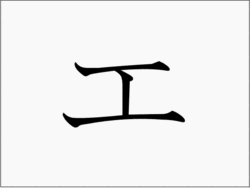Please help me to understand this guys! I'm confused! could anyone… - Feed Post by duburasu
Please help me to understand this guys!
I'm confused!
could anyone translate it (English) and explain whats the difference?!
1: お金があれば大きい家が買いたいですね
2:お金があったら大きい家が買いたいですね
3:お金があると大きい家が買いたいですね
手伝ってお願い Σ(゚Д゚)
I'm confused!
could anyone translate it (English) and explain whats the difference?!
1: お金があれば大きい家が買いたいですね
2:お金があったら大きい家が買いたいですね
3:お金があると大きい家が買いたいですね
手伝ってお願い Σ(゚Д゚)
posted by duburasu May 24, 2015 at 7:33pm
Comments 6
 i think both 1 and 2 are the same: IF i have money, i want to buy a big house.
i think both 1 and 2 are the same: IF i have money, i want to buy a big house.
And 3: WHEN i have money, i want to buy a big house.
about the grammar, well, i don't know how to explain in english, but my book said " the construct [A と, B] signifies that when A is realized, B must come about necessarily. B is in the present tense. The speaker's intentions or requests are not given in B"
~ば is similar to ~たら, but in the construct [A ば, B] : "when A is a verb of momentariness, the speaker's intentions or requests are not expressed in B" ( verbs of momentariness indicate actions or effects that ends in a moment, たとえば: 開く、結婚する、始まる、咲く、入る、起きる...)
hope it helpful ^^May 24, 2015 at 9:11pm it is right that every time I use ーるとform,Then the next verb should be in either ーるorーますform?
it is right that every time I use ーるとform,Then the next verb should be in either ーるorーますform?
so if I apply this to sentence no. 3 it become
- お金があると、大きい家(が or を)買いたくなりますね
thus the particle of sentence no. 3 correct?May 24, 2015 at 9:45pm sorry, i didn't notice it when i typed.
sorry, i didn't notice it when i typed.
not always, the present tense in B just for situations below:
1.自然に起こること
- 暖かくなると、桜の花が咲きます。
2.機械の使い方を説明すること
- ここを強く押さないと、電気はつきません。
3.習慣
-毎朝起きると、コーヒーを飲む。
all of them is what i noted from my teacher, maybe there are more.
[~ると, ~た(past tense)] is an other case.
May 24, 2015 at 10:35pm From what I've read from grammar books, HuongHitachi's explanation is quite accurate, but just to make it even clearer: since "the construct [A と, B] signifies that when A is realized, B must come about necessarily."; you shouldn't normally use sentence 3 to express this situation, 'cause having money doesn't necessarily mean you will want to buy a big house.May 25, 2015 at 1:10am
From what I've read from grammar books, HuongHitachi's explanation is quite accurate, but just to make it even clearer: since "the construct [A と, B] signifies that when A is realized, B must come about necessarily."; you shouldn't normally use sentence 3 to express this situation, 'cause having money doesn't necessarily mean you will want to buy a big house.May 25, 2015 at 1:10am Well, you could just fix sentence three to remove the "desire" and state that when you have enough money you will buy a house.May 25, 2015 at 7:55am
Well, you could just fix sentence three to remove the "desire" and state that when you have enough money you will buy a house.May 25, 2015 at 7:55am For the third construction, as Will_SH and HuongHitachi have already stated, what comes after と is something that's logically supposed to happen. 「りんごを落とすと落ちる。」「寝てる赤ちゃん起こすと泣く。」. How one feels should never come after と, yet it does. When I listen to my friends talk or read written (casual) Japanese, this rule isn't always followed. Even with potential constructions, which should take が (が話せる、が飲める), people use を. Or how I hear 「全然大丈夫です」when one should only use 全然 when constructing a negative sentence. I'm not sure if this is a transformation in the language or people are speaking and writing incorrectly. Even in English, we have those who cannot distinguish the difference between your and you're or its and it's in written English. Either way, you won't be wrong if you follow the advice already given to you.May 26, 2015 at 1:59pm
For the third construction, as Will_SH and HuongHitachi have already stated, what comes after と is something that's logically supposed to happen. 「りんごを落とすと落ちる。」「寝てる赤ちゃん起こすと泣く。」. How one feels should never come after と, yet it does. When I listen to my friends talk or read written (casual) Japanese, this rule isn't always followed. Even with potential constructions, which should take が (が話せる、が飲める), people use を. Or how I hear 「全然大丈夫です」when one should only use 全然 when constructing a negative sentence. I'm not sure if this is a transformation in the language or people are speaking and writing incorrectly. Even in English, we have those who cannot distinguish the difference between your and you're or its and it's in written English. Either way, you won't be wrong if you follow the advice already given to you.May 26, 2015 at 1:59pm
